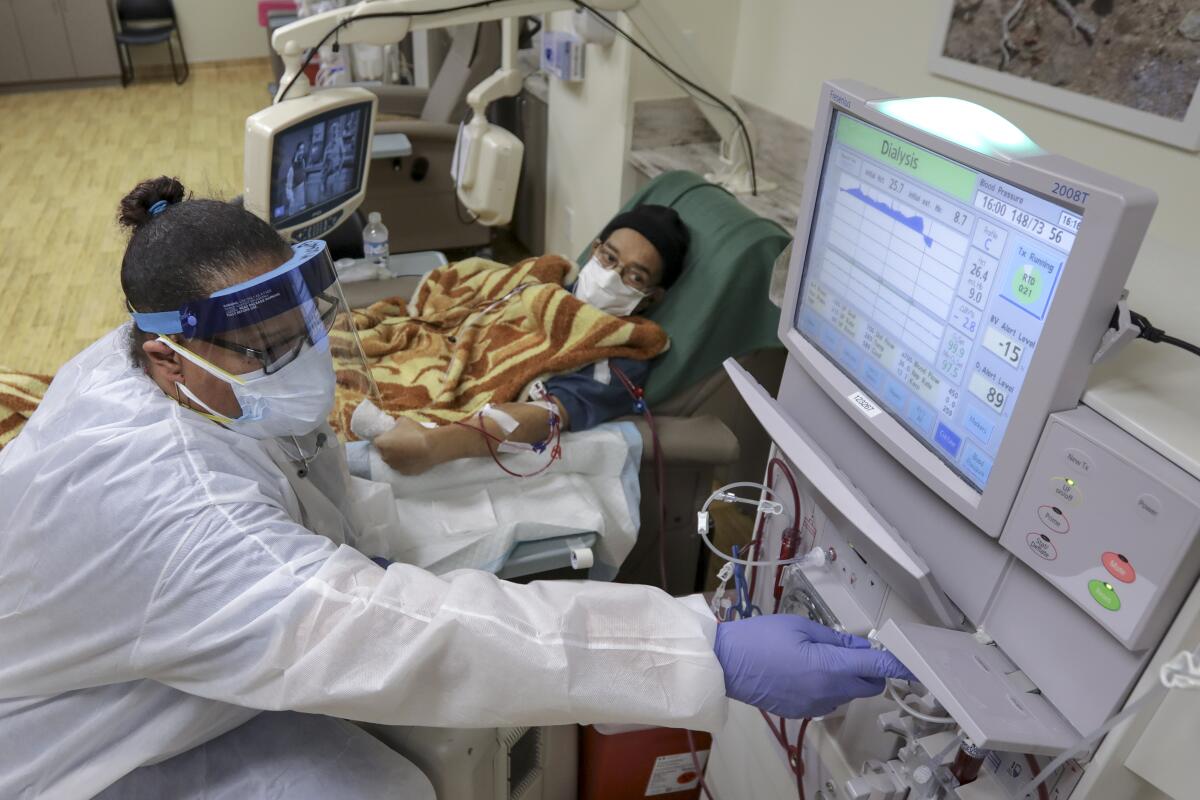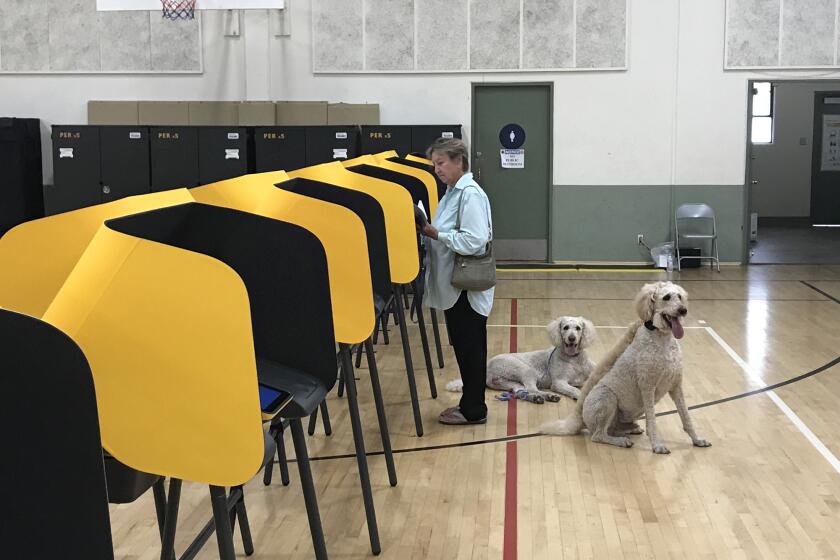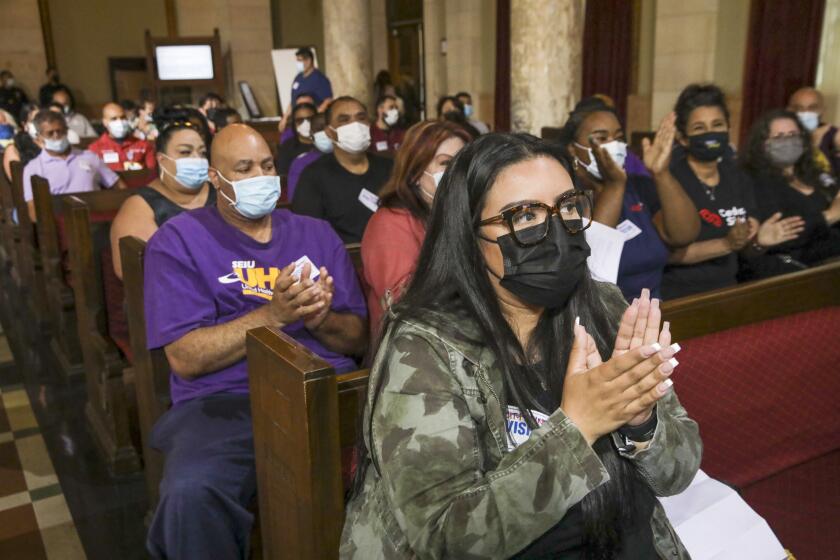Endorsement: On the ballot for a third time, Prop. 29 is a tired retread that could hurt dialysis patients

- Share via
Proposition 29 on the November ballot would set new requirements for all of the state’s dialysis centers, including forcing the clinics to hire unnecessary medical staff. If this proposal seems familiar that’s because it’s virtually the same as two previous measures on the 2018 and 2020 ballots.
Voters correctly rejected the last two propositions, and they should do so a third time.
The 2022 initiative — and the two before it — was placed on the ballot by the Service Employees International Union-United Healthcare West, which is in a protracted battle with the two largest private dialysis companies, DaVita and Fresenius, to organize workers. The measure has a number of needless provisions, such as requiring infections to be reported to the state, though these data are being reported to the federal government now, and prohibiting dialysis centers from discriminating due to payer source, which even the proponents say is not a problem now.
But the most consequential provision is the requirement that a physician, nurse practitioner or physician’s assistant with experience be on-site at all times at the roughly 650 dialysis centers in the state.
The proponents says the proposition is intended to improve patient care. It’s an assertion they can’t back up with evidence. No other state requires a doctor on-site, nor do the Centers for Medicare & Medicaid Services or the California State Department of Public Health, which regulates dialysis centers. Nor is there evidence that the current arrangement has harmed patients.
The Times will begin publishing our endorsements this week for ballot measures and major local and statewide races.
The SEUI-UHW says the 9-1-1 service calls from dialysis centers suggest the need for more staff, though they offer no data that the volume is higher than might be expected given that dialysis patients often have other serious health conditions. It’s true that clinics often have to call for help if a kidney patient has an emergency, but that won’t change even with extra staff because they are not emergency medical facilities. And the trained nurses and technicians at dialysis clinics are just as equipped to deliver basic lifesaving care as doctors or nurse practitioners required under the proposition.
Clinics are already required to have a physician on staff overseeing patients’ care, and each patient has a kidney specialist directing their individual treatment. An on-site doctor would not have the authority to make changes to the care prescribed by a patient’s doctor.
The opponents say Proposition 29 would probably hurt patients more than help. That’s because the added cost of hiring unnecessary staff, which is estimated at several hundreds of thousands of dollars per year for each clinic, could force some centers to close or reduce hours. Dialysis patients who are in kidney failure typically require several hours of dialysis three times a week. If they miss a treatment because of reduced hours or access, it could be fatal.
The opponents include patient advocates and healthcare associations whose members might benefit from the expanded job opportunities the proposition would create: the California Medical Assn., the California chapter of the American Nurses Assn., and the American Academy of Nephrology PAs, along with the Renal Physicians Assn. and the California Dialysis Council.
Government shouldn’t be setting pay willy-nilly just for some workers in some facilities without at least considering or debating the repercussions.
You can find a full list of the opponents on noprop29.com. The yes campaign has www.yeson29.com.
This measure isn’t really about patient care. Even the labor-friendly Legislature has refusedto pass similar legislation. Furthermore, it’s a tactic the union has used before to pressure healthcare facilities, most recently in Los Angeles and other cities, where the SEIU-UHW has qualified local ballot measures to force private health facilities, including dialysis centers, to pay workers at least $25 an hour.
California’s initiative system was created more than a hundred years ago to give citizens the power to make new laws when their elected leaders failed to do so. It was not intended to be weaponized in this way. Voters should reject Proposition 29 — and hope that they won’t have to do so again in 2024, and 2026, and beyond.
Read more endorsements at: latimes.com/endorsements
More to Read
Updates
12:08 p.m. Oct. 17, 2022: An earlier version of this endorsement reported that the proponents did not have a website. Since then, the yes campaign has launched www.yeson29.com.
A cure for the common opinion
Get thought-provoking perspectives with our weekly newsletter.
You may occasionally receive promotional content from the Los Angeles Times.












